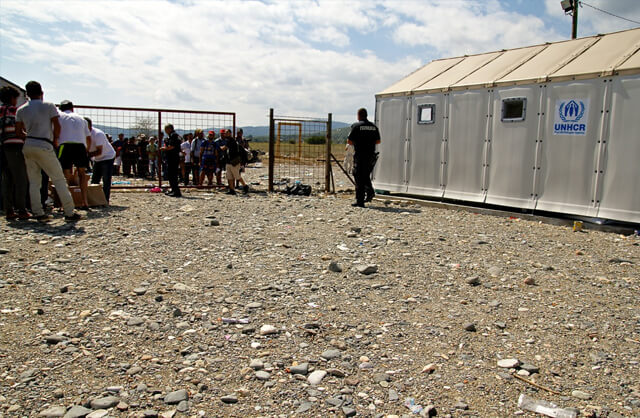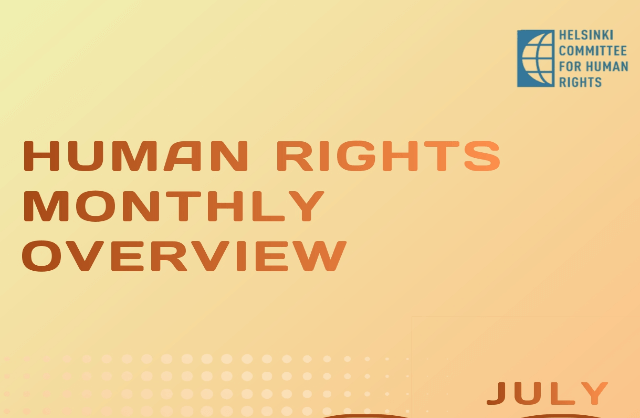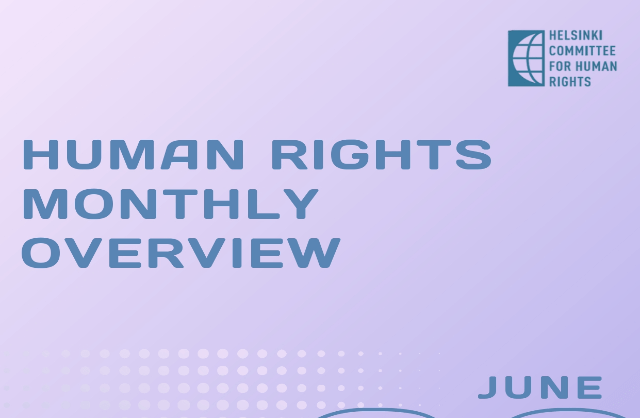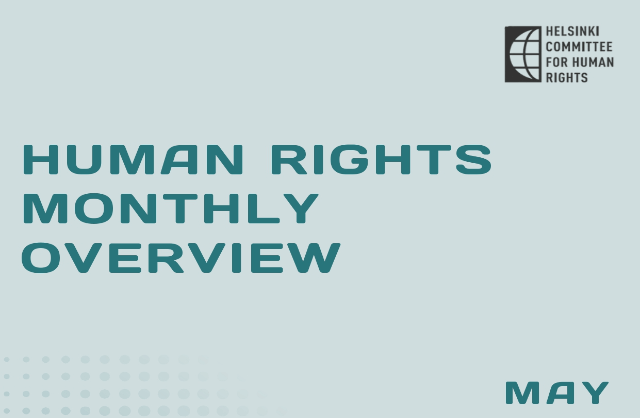The situation at the border crossings Gevgelija and Kumanovo for the period: 08.02.2016 – 14.02.2016
February 18, 2016

The weekly report on the situation at the border crossings Gevgelija and Kumanovo includes the following topics: Available facilities and conditions at the camp and Institutional treatment.
Gevgelija
Available facilities and conditions
12,602 refugees were registered during this period, which is 15% less than last week, when a total of 14,589 refugees were registered.
Work on upgrade of the facilities is constantly under way. For example, toilets are being set up in the vicinity of the train platform, as well as near the two big tents, which will significantly unburden the refugees’ stay in the camp. Furthermore, four new containers have been set up in the vicinity of the train, two of which are equipped with beds and are intended for longer periods of rest for the refugees.
On 09.02.2016, the President of the Republic of Macedonia, Gjorge Ivanov, paid a visit to the camp, while towards the end of the week there was also a visit by the Minister of Defense, Zoran Jolevski.
There is regular presence of media reporters in the camp, both domestic and foreign. In certain situations, indecent and unethical conduct on the part of some of the media teams was observed, who took photos and videos of the refugees without permission and upset them by asking personal questions, even when they refused to answer.
The Helsinki Committee urges the reporters on field to comply with the ethical standards of journalisim and bear in mind the sensitive nature of the refugee’s situation.
Institutional treatment
In the course of the week, a solution to the recurring problem with the transport and filtering of refugees who do not have enough money for tickets was introduced. A list of people who do not have enough money (or no money at all) for tickets and who have spent a certain amount of time in the camp is made and then delivered to Macedonian Railroads after prior approval of an official from the Crisis Management Center and these people are then allowed to board the train.
The Helsinki Committee commends this solution and encourages its further implementation.
There is presence of police officers from the Czech, Slovak, Slovenian, Hungarian and, since recently, the Serbian police force in the camp. Increased patrols around the town, the roads and villages in the vicinity have also been observed.
In an isolated event, members of the Slovak police intervened in a case of a fight between a group of Afghans and Syrians which occurred on the train.
The deportation of individuals and groups to Greece constantly increases, due to the increasing number of groups caught with forged documents. What is new is that in the course of the week refugees originating from Nepal, Kenya and Sri Lanka were also found on Macedonian territory.
Kumanovo
Available facilities and conditions
The transiting of refugees through the camp in Tabanovce proceeds quickly and in good order. The refugees stay in the camp only briefly, whereby they continue their journey to Serbia.
Institutional treatment
One of the most serious problems in the camp is the problem with the so-called “economic migrants”, i.e. organization of their transportation back to Gevgelija. In the absence of a means of transport back to Gevgelija, they end up in the camp for longer periods of time, sometimes up to a week, which has negative impact on their health.
In the course of the week, after an intervention of the field observers, an off-the-record arrangement was made with the police officers to send “the economic migrants” back to Gevgelija by train. However, this decision has not been taken up by the employees of Macedonian Railroads, with the excuse that they are unable to proceed with it without an order from the management. Towards the end of the week, it was arranged for the camp manager to give approval for the transportation of the “economic migrants” back to Gevgelija by train.
The Helsinki Committee appeals for well-organized and coordinated arrangement between the institutions in charge of the camp, in order to provide transport for the “economic migrants” who wish to go back to Gevgelija.
11 people were sent back to Macedonia from the Serbian side in the course of the week, some of them because they were from the group of “economic migrants”, while the others because they did not possess the necessary documents.
 This report is made possible by the generous support of the Foundation Open Society Institute (FOSI) within the project „Improvement of the rights protection for migrants and asylum seekers in the Republic of Macedonia“. The contents are the responsibility of the Helsinki Committee for Human rights of the Republic of Macedonia and do not necessarily reflect the views of FOSI.
This report is made possible by the generous support of the Foundation Open Society Institute (FOSI) within the project „Improvement of the rights protection for migrants and asylum seekers in the Republic of Macedonia“. The contents are the responsibility of the Helsinki Committee for Human rights of the Republic of Macedonia and do not necessarily reflect the views of FOSI.


